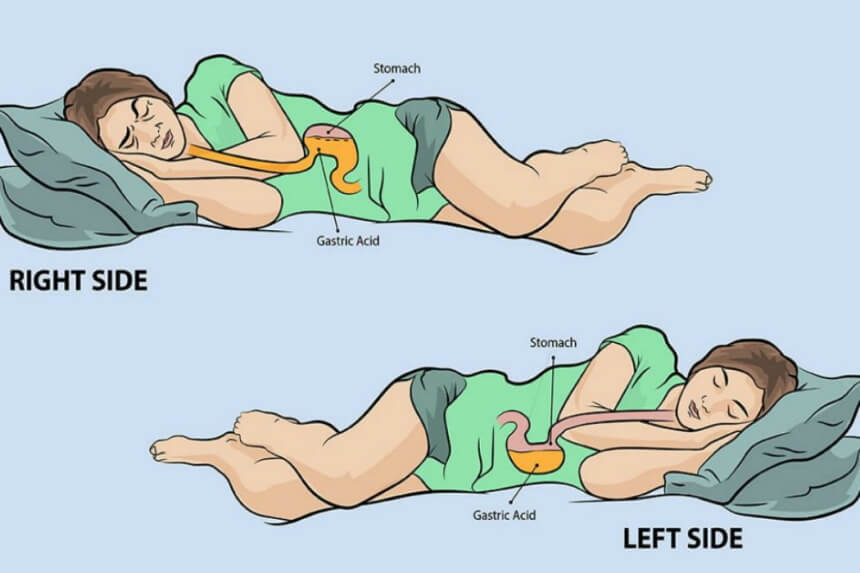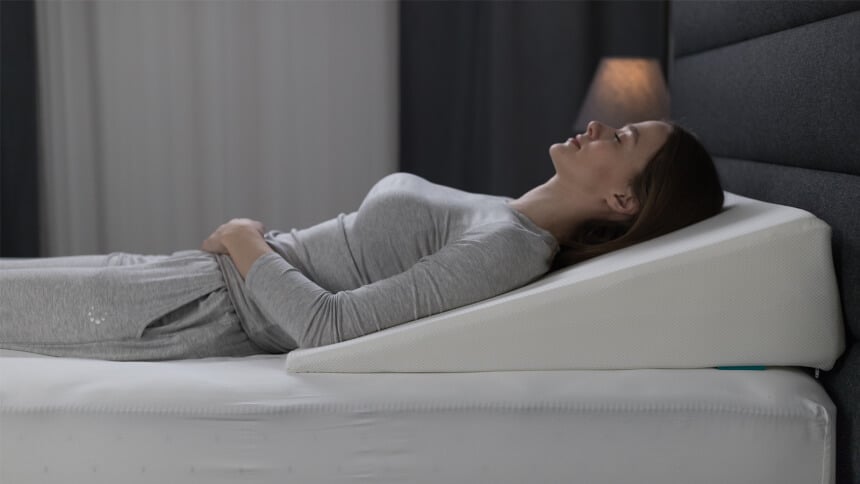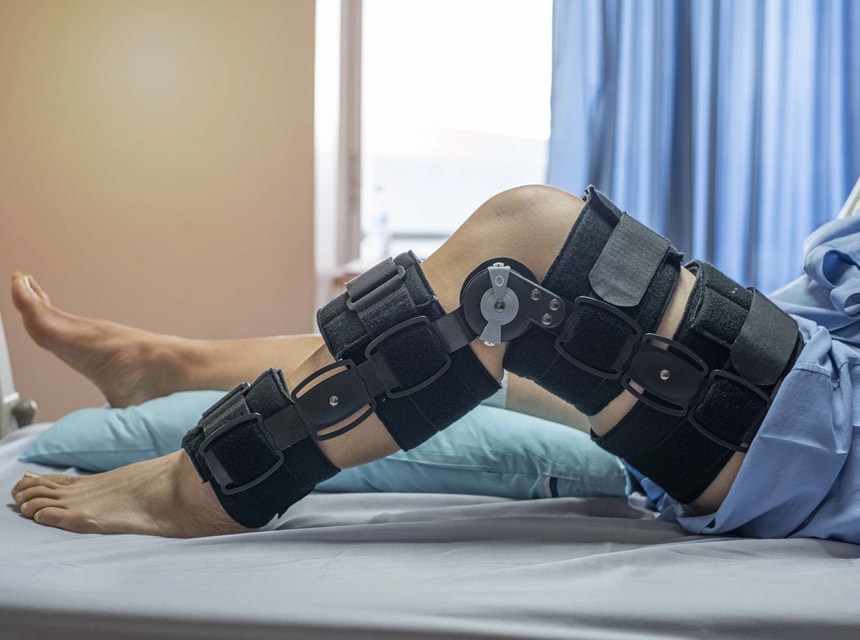

Sleep positions and digestion have an interesting relationship. On the one hand, insufficient sleep can result in indigestion problems, and on the other, if you wake up in the middle of the night due to abdominal pains, heartburn, or bloating, you’ll have a hard time falling asleep. It’s like a vicious cycle!
It’s easy to control your sleep quality by getting comfortable beddings, sleeping early, meditation, etc. However, preventing nighttime indigestion requires you to make a methodical approach. There are several factors that you should consider, including your last meal or midnight snack, when you had the meal, and most importantly, your sleep position.
The way you sleep can aid or disrupt healthy digestion, ultimately impacting your sleep quality. We have compiled this simple guide on the best sleeping position for digestion and tips on how you can help digestion at night. Check out more details below!
 It’s all about the impact of your physical alignment on the digestive tract. But first, let’s go through the basics; your digestive tract is located in your abdomen. When you’re sitting or standing, digestion is better because the force of gravity restricts gastric acid in the abdomen and prevents it from rising into the esophagus. It also pulls food towards the intestines. This is why digestion is better during the day when you’re going through your daily activities.
It’s all about the impact of your physical alignment on the digestive tract. But first, let’s go through the basics; your digestive tract is located in your abdomen. When you’re sitting or standing, digestion is better because the force of gravity restricts gastric acid in the abdomen and prevents it from rising into the esophagus. It also pulls food towards the intestines. This is why digestion is better during the day when you’re going through your daily activities.
According to CNN Trusted Source Benefits of exercise: Better hearing, less constipation | CNN Finding time to move and work out will benefit sleep, reduce colds and improve your eyesight, according the latest research. www.cnn.com , regular exercise can lessen the time it takes for the stomach to empty food into the small intestines for more digestion, ultimately helping with digestion and reducing the chances of getting constipated. When it comes to digestion at night, it’s a different story. It’s more difficult because the relationship between gravity and your digestive tract changes. The gastric activity also slows down, and both factors combined can result in indigestion.
Here are the other ways in which sleeping positions impacts digestion:
In some cases, less-than-ideal sleep positions can lead to morning constipation and other unpleasant effects. Which sleeping positions cause digestive issues? In the next section, we’ll take a closer look at the best sleeping position, the benefits, and drawbacks of various sleeping positions, as well as how you can aid healthy digestion at night.
 Your body is asymmetrical, and most of your organs are located on one side of your body. This means that if you sleep on the wrong side, it could compress or give organs more space. When it comes to healthy digestion at night, your left side is the best side, and here’s why; your stomach is located on this side.
Your body is asymmetrical, and most of your organs are located on one side of your body. This means that if you sleep on the wrong side, it could compress or give organs more space. When it comes to healthy digestion at night, your left side is the best side, and here’s why; your stomach is located on this side.
When you sleep on the left side, the force of gravity restricts digestive acids to the stomach, preventing acid reflux. It also keeps the ileocecal valve that’s responsible for emptying contents from the small intestines to the large intestines, compression, and restriction-free.
If you’re having a hard time sleeping on your left side, here are 3 effective tips to help you:
If you can’t stand sleeping on your left side, we have compiled a quick overview of the other sleeping positions and how they impact your sleep quality and digestion at night.
 If you’re a back sleeper, you’re safe because this sleeping position aligns all your internal organs and doesn’t compress the digestive tract. The only downside is that you may experience acid reflux, but you can solve this by propping your head on a pillow.
If you’re a back sleeper, you’re safe because this sleeping position aligns all your internal organs and doesn’t compress the digestive tract. The only downside is that you may experience acid reflux, but you can solve this by propping your head on a pillow.
If you’re a right-side sleeper, you may not experience indigestion because your stomach will be above your spine and restriction-free. You, however, risk acid reflux which is why it’s recommended that you regularly switch between your right and left sides.
You should also get a comfortable mattress, and according to multiple reviews, the ViscoSoft 4 Inch mattress is one of the best. It’s made from gel memory foam, relieves soreness, and is highly durable. It also comes with a 60-day money-back guarantee.
This sleeping position is not ideal as it misaligns your spine and can cause tension on your neck, hips, and back. It also causes systemic stress that restricts healthy digestion in addition to compressing your stomach. If you’re a stomach sleeper, make sure you get a comfortable mattress for increased comfort.
 If your preferred sleeping position is causing indigestion at night, here are several effective tips for you:
If your preferred sleeping position is causing indigestion at night, here are several effective tips for you:
According to The Guardian Trusted Source Could it be your gut keeping you awake at night? | Sleep | The Guardian An increasing number of scientists are waking up to the idea of a link between the digestive system and problems with sleep www.theguardian.com , your digestive system could be keeping you up at night. Your sleeping position highly impacts healthy digestion, and some positions could result in constipation, cause nausea, and trigger acid reflux. Based on expert recommendations, the best sleeping position for digestion is your left side. Your spinal cord is aligned, eliminating the risk of back or neck pains, and your digestion tract isn’t compressed. If you find this position uncomfortable, you could support your knees with a pillow or prop your head higher. You should, however, note that the best sleeping position is ultimately the one that helps you give a good night’s sleep without impacting your digestive system.




